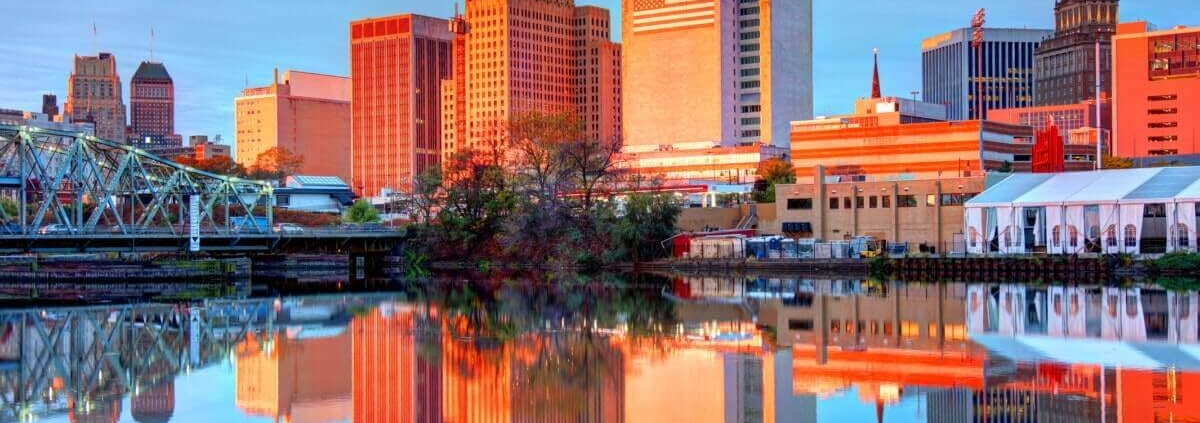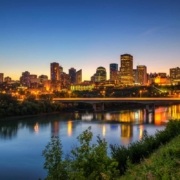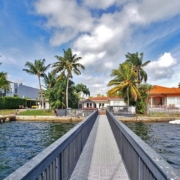Airbnb Regulations in Newark, New Jersey
Nestled within the bustling New York City Metropolitan Area, Newark, New Jersey, serves as a vibrant hub for travelers seeking accommodations that offer the warmth of a home with the unique charm of living like a local. However, the burgeoning popularity of Airbnb in such a densely populated and dynamic region has necessitated the development of specific regulations. These rules aim to ensure the harmonious integration of short-term rentals with the local community, uphold safety standards, and maintain a level playing field within the traditional hospitality sector. This article delves into the intricate Airbnb regulations in Newark, New Jersey, shedding light on the implications for hosts, travelers, and the city’s residents.
- Top Newark Airbnb Neighborhoods Every Host Should Invest In
- The Strategic Move: Why Newark’s Airbnb Market is a Goldmine for Savvy Investors
- Turn Your Newark Airbnb Property into a Money Machine: The Airbnb Business Masterclass
- Powerful Dates That Will Skyrocket Your Newark Airbnb Hosting Game
- Essential Guide for Newark Airbnb Hosts: Elevating Guest Experiences
- The Surprising Profitability of Airbnb in Jersey City: A Guide to Success
- The Ultimate Guide to Jersey City Airbnb Neighborhoods for Hosts
Understanding Airbnb

The Rise of Airbnb
Airbnb has emerged as a cornerstone of the sharing economy, transforming the travel landscape since its launch in 2008. This innovative platform has democratized the way people stay while traveling, offering more than just a place to sleep. By enabling property owners to rent out their spaces, Airbnb has not only provided travelers with a wide range of accommodation options but has also empowered locals to earn extra income. The diversity of offerings on Airbnb is vast, ranging from single rooms in shared apartments to entire homes, and even unique properties like castles and treehouses. This variety caters to a broad spectrum of travelers, from budget solo travelers to luxury seekers, making it a popular choice for accommodation worldwide.
The success of Airbnb can be attributed to its ability to meet the evolving needs of modern travelers who seek authentic experiences and the comfort of home. Unlike traditional hotels, Airbnb accommodations often provide a personal touch, offering guests the opportunity to live like locals. This has not only appealed to travelers seeking unique and personalized lodging options but has also tapped into the growing trend of “experiential travel.”
Airbnb’s rise is marked by rapid growth and expansion into hundreds of countries, demonstrating the universal appeal of its model. By connecting people with places to stay in virtually any corner of the world, Airbnb has played a pivotal role in making travel more accessible and diverse.
How Airbnb Works
Airbnb operates on a peer-to-peer model, fundamentally different from traditional lodging options. This model has disrupted the hospitality industry by providing a platform where anyone with a room, apartment, or house can become a host. Here’s how it works:
Hosts List Their Space: Property owners can list their space on the Airbnb platform, setting their own price, availability, and house rules. Airbnb provides hosts with tools to help describe their listing with photos, amenities, and detailed descriptions to attract guests.
Guests Search and Book: Travelers can search the Airbnb platform for accommodations that meet their criteria, such as location, price, size, and amenities. Once they find a suitable listing, guests can book their stay through the platform, choosing dates and agreeing to the host’s terms.
Communication and Payment: Airbnb facilitates communication between hosts and guests, allowing them to exchange messages, ask questions, and provide instructions. Payments are also handled securely through the platform, with Airbnb acting as an intermediary. This ensures that transactions are transparent and trust is maintained between both parties.
Reviews and Feedback: After the stay, both hosts and guests are encouraged to leave reviews for each other. This feedback system is a crucial element of Airbnb’s model, promoting accountability and trust within the community. Positive reviews can help hosts attract more guests in the future, while guests benefit from insights into the quality and accuracy of listings.
The effectiveness of Airbnb’s model lies in its simplicity and the mutual benefits it provides to both hosts and guests. For hosts, it offers the opportunity to monetize unused space and meet people from around the world. For guests, it provides a more diverse, often more affordable, and authentic travel experience compared to traditional hotels. This symbiotic relationship, underpinned by trust and transparency, is what makes Airbnb a leading figure in the sharing economy.
Explore:
- Short-Term Rental in Big Apple: New York Airbnb Regulations
- Airbnb Rules Houston: Understanding Airbnb Regulation in Houston
- Austin, TX, Airbnb Rules and Regulations
- Atlanta Airbnb Regulation
- Understanding Airbnb Regulations in Los Angeles
- Navigating San Francisco Short-Term Rental Laws
- A Comprehensive Guide to Navigating Short-Term Rental Regulations in Miami and Miami Beach
- Airbnb Regulations in Greater Los Angeles Area
- Airbnb Regulations in Las Vegas: A Comprehensive Guide
Airbnb Regulatory Landscape
The phenomenal growth of Airbnb, while contributing significantly to local economies and offering travelers more diverse accommodation options, has not been without its challenges. The platform’s rapid expansion has led to increasing scrutiny from local authorities across the globe, underscored by a growing need for regulatory measures. Let’s delve into the reasons why regulation has become a pivotal aspect of the short-term rental landscape.
The Need for Airbnb Regulation
Airbnb’s ascent in the hospitality industry has brought to light several issues that have prompted local governments to consider and implement regulations. These concerns primarily revolve around the following:
Noise and Disturbance Complaints: One of the immediate impacts of having an Airbnb property in a residential area is the potential for noise and disturbances. Airbnb guests might not always adhere to the quiet hours typical in residential neighborhoods, leading to complaints from long-term residents. This disruption of the community’s peace and tranquility has been a significant concern.
Conversion of Residential Properties: A more profound issue arises when entire homes or apartments are converted into full-time short-term rental properties, effectively functioning as hotels but without adhering to the same regulations or tax obligations. This conversion can lead to a decrease in the availability of long-term rental properties, affecting residents who find themselves competing with tourists for living spaces.
Impact on the Housing Market: The lucrative potential of short-term rentals has led to a trend where investors purchase properties exclusively for Airbnb purposes. This not only reduces the housing stock for residents but can also drive up property prices and rental rates, making housing less affordable for the local population. In cities with already tight housing markets, this can exacerbate housing shortages and contribute to gentrification, pushing long-standing residents out of their neighborhoods.
Regulatory and Tax Compliance: Traditional lodging establishments, such as hotels and bed and breakfasts, are subject to stringent regulations, including health and safety standards, zoning laws, and tax obligations. The rise of Airbnb has raised questions about how short-term rentals fit into existing legal frameworks and how they can be made to contribute fairly to city revenues through taxes and fees.
The call for regulation, therefore, stems from a need to address these challenges in a manner that balances the interests of all stakeholders—homeowners looking to rent out their properties, travelers seeking accommodations, long-term residents of communities, and the local government. Effective regulation can help ensure that Airbnb operates in a way that contributes positively to local communities without undermining the stability of housing markets or the quality of life for residents. It’s about finding a middle ground where the innovative platform can continue to thrive while respecting the fabric of the communities it operates within.
Newark’s Approach to Airbnb
In response to these challenges, Newark has implemented a set of regulations aimed at safeguarding the interests of the local community, ensuring guest safety, and maintaining fair competition within the accommodation sector.

Key Airbnb Regulations in Newark
Navigating the intricacies of Airbnb regulations in Newark reveals a carefully structured approach designed to balance the burgeoning short-term rental market with the needs and safety of the community. Let’s delve into the key aspects of these regulations, focusing on permit requirements, safety and health standards, and tax obligations for Airbnb hosts in Newark.
Permit Requirements
In Newark, a significant regulation for Airbnb hosts is the acquisition of a specific permit or license, signifying compliance with local zoning laws and potentially involving property inspections to adhere to safety standards. This permit process is critical for ensuring that short-term rentals operate within the legal framework set forth by the city. Notably, short-term rentals are defined as the accessory use of a dwelling unit for occupancy by individuals other than the unit’s owner or permanent resident for a period of 28 or fewer consecutive days. These rentals must be advertised or held out to the public as places regularly rented to transient occupants.
Permits are only granted to certain property types in Newark, including condominium units with the appropriate association bylaws, single-family residences, one unit within a two-family dwelling with the owner occupying the other unit, and specific units within multifamily dwellings. A unique aspect of Newark’s regulations is the requirement that if a property is owned by an entity, at least one principal of that entity must reside in the rental property or the principal residential unit on the same lot, declaring it their principal residence.
For condominiums, the application process requires a letter of approval from the Condominium Association. Additionally, a Zoning Compliance Certificate, confirming the property’s adherence to Newark’s Land Use Regulations and Zoning Ordinance, is necessary alongside proof of ownership and a minimum of $500,000 in general liability insurance. The commitment of the property agent and responsible party to fulfill their duties is also a critical part of the permit application.
Safety and Health Regulations
The city of Newark places a high priority on the safety and health of short-term rental properties, mandating compliance with local regulations. These standards encompass fire safety, maintenance, habitability, and overall property condition to ensure a secure and healthy environment for guests. Every application for a short-term rental permit necessitates an annual inspection to verify adherence to the city’s fire safety regulations and property maintenance code. These measures are in place to protect both guests and the local community from potential hazards.
Tax Obligations
Another crucial aspect of operating an Airbnb in Newark is the requirement for hosts to register with local authorities for tax purposes. This involves the collection and remittance of applicable state and county sales taxes, as well as any local hotel taxes. Such financial contributions are vital for supporting city services and infrastructure, thereby benefiting both residents and visitors. Short-term rentals are integral to Newark’s tourism sector, and through these tax obligations, Airbnb hosts play a direct role in the city’s economic health.
Impact of Regulations on Different Stakeholders
On Hosts
For hosts in Newark, navigating the regulatory framework introduces both challenges and opportunities. On one hand, the need for compliance might necessitate investments in property improvements and adherence to administrative processes, such as obtaining permits and ensuring their property meets all health and safety standards. This effort, while demanding, is not without its rewards.
By aligning with the city’s regulations, hosts not only enhance the safety and quality of their offerings but also legitimize their operations. This legitimacy can be a significant draw for guests who prioritize safety and compliance, potentially leading to increased bookings. Furthermore, operating within the regulatory framework can protect hosts from potential legal issues, providing a more stable and predictable hosting environment.
On Travelers
Travelers stand to benefit significantly from Newark’s Airbnb regulations. These rules ensure that all listed properties adhere to strict safety and quality standards, offering guests peace of mind during their stay. Knowing that accommodations have passed city inspections and meet defined criteria can enhance the overall travel experience, making Newark an attractive destination for discerning travelers.
Moreover, the emphasis on compliance and safety can elevate the reputation of Newark’s Airbnb market, attracting a broader audience of visitors who might otherwise opt for traditional hotels. This shift not only benefits travelers but also contributes to the vibrancy and diversity of Newark’s tourism sector.
On the Local Community
The broader impact of Airbnb regulations in Newark extends to the local community, addressing potential concerns associated with the rise of short-term rentals. By limiting Airbnb operations to certain property types and requiring hosts to adhere to strict standards, the regulations aim to preserve the availability of residential housing, mitigating the risk of converting long-term rentals into short-term accommodations. This focus helps maintain a balance in the housing market, ensuring that Newark’s residents have access to affordable housing options.
Additionally, the regulations help maintain neighborhood tranquility by addressing common concerns such as noise and overcrowding. By ensuring that Airbnb properties are properly managed and meet all local standards, the city aims to minimize disturbances and maintain the quality of life for all residents. This careful management of short-term rentals supports harmonious coexistence between hosts, guests, and permanent residents, contributing to the overall health and sustainability of Newark’s communities.

Navigating the Regulations
Navigating the regulatory framework for Airbnb in Newark requires a proactive approach from both new and existing hosts, ensuring not only compliance but also the highest standards of hospitality and safety. Additionally, considering the evolving nature of these regulations, understanding how to adapt and stay informed is crucial for all stakeholders involved in the short-term rental market.
For New Hosts
Entering the Airbnb market in Newark as a new host comes with its own set of responsibilities and requirements. To successfully navigate this landscape, new hosts should:
Educate Themselves on Local Regulations: A thorough understanding of Newark’s short-term rental regulations is essential. This includes familiarizing oneself with permit requirements, safety and health standards, and tax obligations.
Seek Guidance: Don’t hesitate to reach out to Newark’s Department of Engineering or other relevant local authorities for clarification and guidance on compliance. These entities can provide valuable resources and advice to ensure you start on the right foot.
Ensure Full Compliance: From the outset, make sure your listing complies with all local laws. This includes obtaining the necessary permits, adhering to safety and health regulations, and registering for tax purposes.
Adhering to these steps can help new hosts integrate seamlessly into the Airbnb community in Newark, offering safe, enjoyable, and compliant accommodations to travelers.
Best Practices for Compliance
For existing hosts, maintaining compliance is an ongoing process, especially as regulations can evolve. Here are some best practices to consider:
Stay Informed: Regularly check for updates on local regulations to ensure your listing remains compliant. Changes can happen, and being proactive can prevent any compliance issues.
Open Communication with Guests: Clearly communicate with your guests about what they can expect during their stay, including any house rules that ensure compliance with local regulations. This transparency can enhance the guest experience and help avoid misunderstandings.
Invest in Your Property: Beyond mere compliance, consider investing in your property to enhance safety, comfort, and aesthetics. Upgrades not only contribute to exceeding standards but can also make your listing more attractive to potential guests.
By following these practices, existing hosts can continue to offer high-quality, compliant accommodations, contributing positively to Newark’s tourism and local community.
The Future of Airbnb in Newark
The landscape for Airbnb and short-term rentals in Newark is inherently dynamic, reflecting broader trends in travel, the local economy, and urban development. As the city continues to assess the impact of Airbnb on its residents, housing market, and tourism industry, adjustments to regulations are possible. Hosts and travelers should:
Stay Adaptive: Be prepared to adapt to regulatory changes. Flexibility can help mitigate any potential disruptions to your Airbnb hosting or travel plans.
Engage with the Community: Participating in discussions and forums about Airbnb regulations in Newark can provide insights and allow for a collective voice in shaping future regulations.
Utilize Resources: Utilize resources offered by Airbnb, local authorities, and host communities to stay informed about best practices and changes in the regulatory landscape.
The proactive engagement of hosts, combined with a commitment to compliance and quality, will play a pivotal role in shaping the future of Airbnb in Newark. By staying informed and adaptable, hosts and travelers can navigate this evolving landscape successfully, ensuring that the sharing economy continues to thrive in Newark while respecting the needs and concerns of the local community.
Conclusion
Airbnb regulations in Newark represent a critical effort to balance the benefits of the sharing economy with the needs and concerns of the local community. By understanding and navigating these regulations, hosts can contribute positively to the city’s vibrancy and economic vitality, while ensuring a safe, enjoyable experience for travelers.












